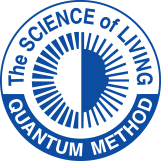
The Weight of Guilt & How to Let It Go: 8 Steps to Freedom
published : 10 September 2016
No one walks through life without making mistakes. Sooner or later, we all say or do things that fall short of what is right.
From these moments of error, guilt, or remorse arises. If guilt is not gently understood and guided, it can settle deep within, disturbing both the mind and the body. If not rightly guided, guilt can quietly erode our confidence, diminish our sense of self-worth, and take away the simple joy of being alive. It can strain relationships, cloud our inner world, and in some cases, even contribute to serious illness, including cancer.
But guilt, when seen in the light of awareness, can become a turning point. With a little inner effort, remorse can be transformed into insight.
Here are eight steps to help you transform guilt into strength—because guilt doesn’t have to be a burden. It can become a powerful pathway to deeper understanding and personal growth.
- See Guilt as a Messenger
The feeling of guilt is not your enemy — it is a gentle signal from within, that something in your thoughts, words, or actions needs your attention. When guilt encourages you to pause, reflect, and make a shift — it becomes a guide.
Take the example of the renowned American singer Neil Diamond. In 1972, at the height of his fame, he stepped away from the world of music for four long years. The reason? A voice within.
He had already experienced the pain of a failed first marriage, and he did not want his second to follow the same path. So he chose to step back, and spend those 48 months with himself, his wife, and his children.
During that time, he confronted his patterns, reflected deeply, and chose differently. And when he finally returned to the stage, he found — a deeper calm, a fuller joy, a truer version of himself. His music flowed more effortlessly, and he too had become a kinder, more grounded human being. - Recognize the Value of Remorse
When one becomes aware of their harmful, aggressive, or unkind actions — whether toward oneself or others — and sincerely feels remorse, that very remorse can spark deep transformation. It becomes the beginning of healing.
True repentance helps cleanse the heart. Whenever we recognize our mistakes and take responsibility with humility, we step onto the path of growth. - Reflect Gently, Analyze Wisely
Not all guilt is born of wrongdoing. Sometimes, it arises from misunderstanding or taking on things that aren’t truly ours to carry. In such cases, thoughtful reflection can dissolve the burden.
Take the story of Nasreen, a working mother. She felt deep guilt when her young daughter fell ill. She believed that her absence, due to work, was the cause. The thought that she had failed as a mother weighed heavily on her.
When she shared her pain with me, I gently asked her to examine the situation through the lens of truth. She realized that if she had left her job, there would be no means to support her daughter’s needs, including medical care. Leaving her job was not within her present reality. And when something is not possible within the honest boundaries of one’s life, there is no wisdom in carrying guilt or remorse for it.
Nasrin, with quiet reflection, observed her guilt through the lens of truth. Once she saw clearly—it was not born of wrongdoing, but of love caught in conflict, the guilt lost its power. It could no longer cast a shadow upon her heart, nor upon the life of her daughter. - Take Thoughtful, Balanced Action
When guilt arises, pause and reflect — then respond with clarity. Ask yourself: What is truly needed here? If your mistake can be corrected, take the step. If someone was hurt, offer a sincere apology. If amends can be made, make them — with humility and love.
But do not allow guilt to push you into extremes. Responding to guilt with actions that are unreasonable or unnecessary only deepens the imbalance.
Let me share a true story. In America, a wealthy man lost his brother in an accident. Before the incident, the brother had asked for a Mercedes Benz car. Caught up in the rush of life, the man delayed the purchase.
After his brother’s sudden death, he was overwhelmed with remorse. As an act of atonement, he commissioned a sculptor to carve a life-size model of the car in stone — from a single block. It took a year and cost the equivalent of 8 million taka. Today, that stone car stands on his brother’s grave like a silent monument to his guilt.
But what if he had used that same money to help others in need — to bring joy or relief to living souls? Would his brother’s spirit not have found greater peace?
Let your remorse inspire wise and compassionate action — not grand gestures that serve the ego. - Accept That You, Too, Are Human
No one is free from mistakes. When you make a mistake, acknowledge it with honesty. Apologize where needed. Then forgive yourself.
You are not beyond error. No one is. But with each mistake comes an opportunity — to grow, to begin again, to soften the heart.
So release unnecessary guilt. Make peace with yourself. With sincerity and forgiveness, every day can be a fresh beginning. - Learn from the Wound
The wise do not walk in circles. They listen to their own missteps and quietly grow from them. Mistakes are not the end of the path — they are part of it.
To repeat the same error again and again is to remain asleep. But to learn from it, and to avoid causing the same harm again, is a sign of true inner maturity. - Repent with Sincerity
If you feel that you have done wrong — to yourself, to others, or to your Creator — turn inward with a sincere heart. Pray to the One who is always listening. Seek help from the Most Merciful — for it is said that His forgiveness is greater than all of our errors combined. He knows the truth of your heart, and no sincere repentance goes unheard.
When repentance is sincere, it washes the soul clean—restoring you to the purity and limitless potential of a newborn child. - Release the Past, Walk Toward the Light
Once you have acknowledged your mistake, taken responsibility, and done what you could to set things right — then let it go.
Release the weight of guilt. Free your mind from the grip of the past. Your heart is not meant to carry the same sorrow forever.
Forget not the lesson, but forget the burden. Let your eyes turn toward a brighter future.
You are not meant to live forever in regret. You are meant to grow, to evolve, to awaken. When you let go of guilt completely from your heart, a new and blessed life begins to unfold.
The steps above are simple yet deeply transformative. When followed with sincerity, they help you rise above guilt and inner heaviness. As you walk this path, your true potential begins to unfold, leading you toward a life of peace, dignity, and quiet joy.


















